The inaugural Digital Human Rights and AI Governance Forum in South Taiwan commenced at NSYSU, with Opening Remarks by Chen Chu
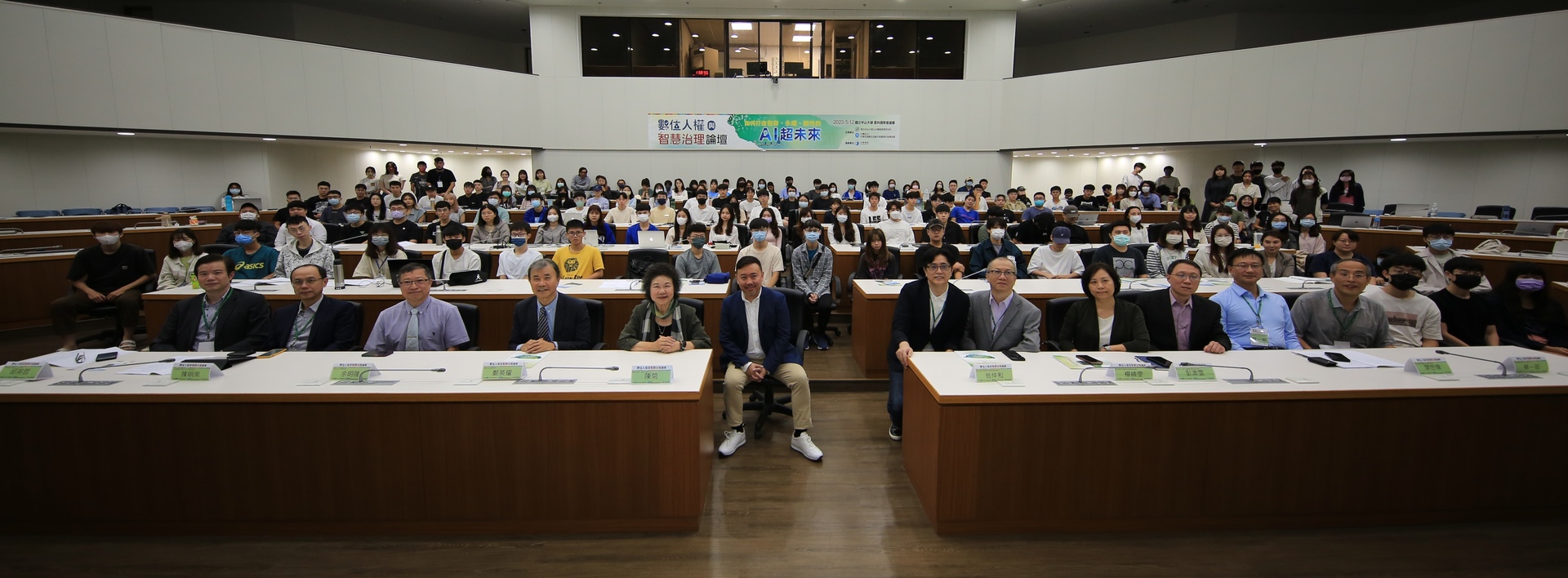
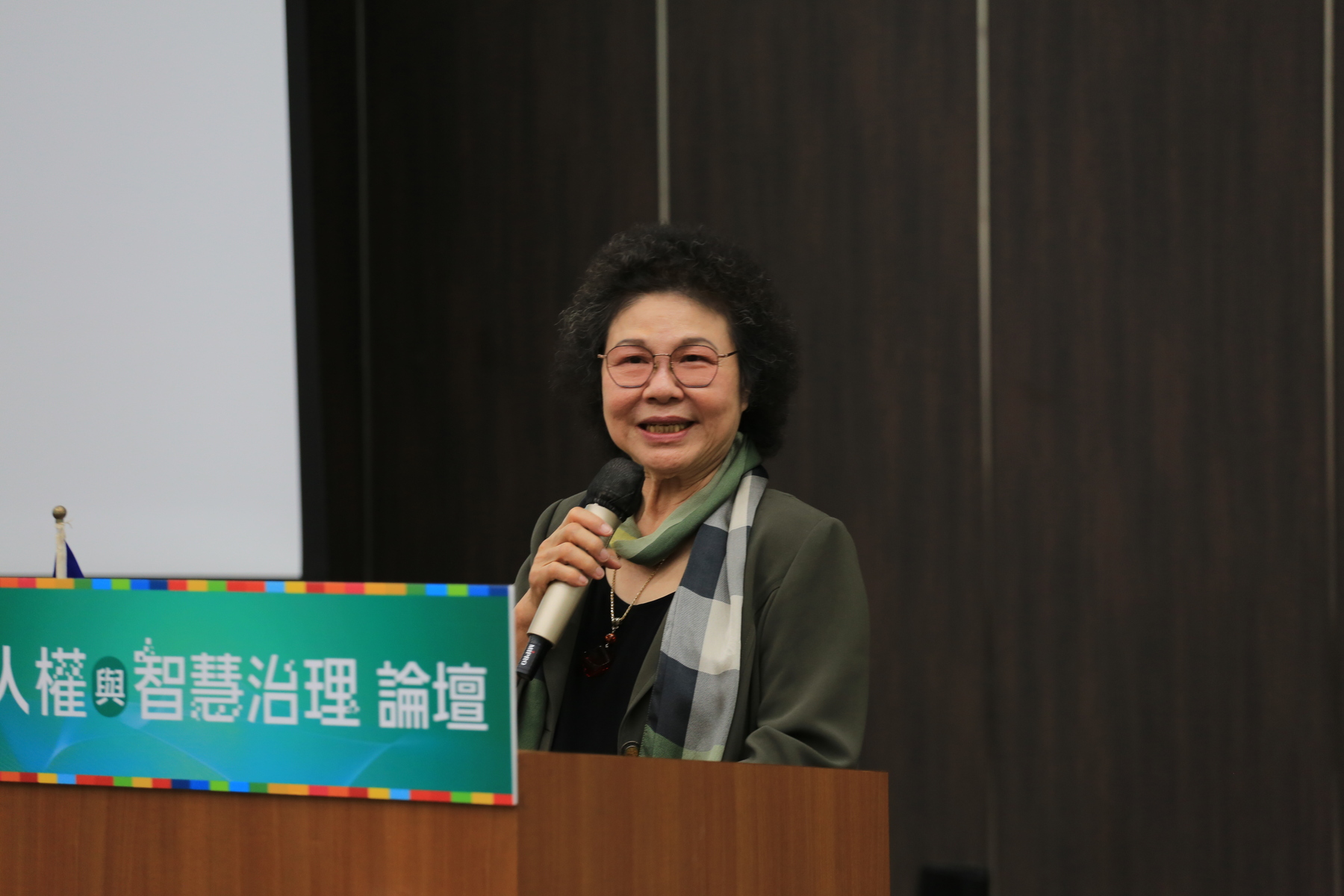

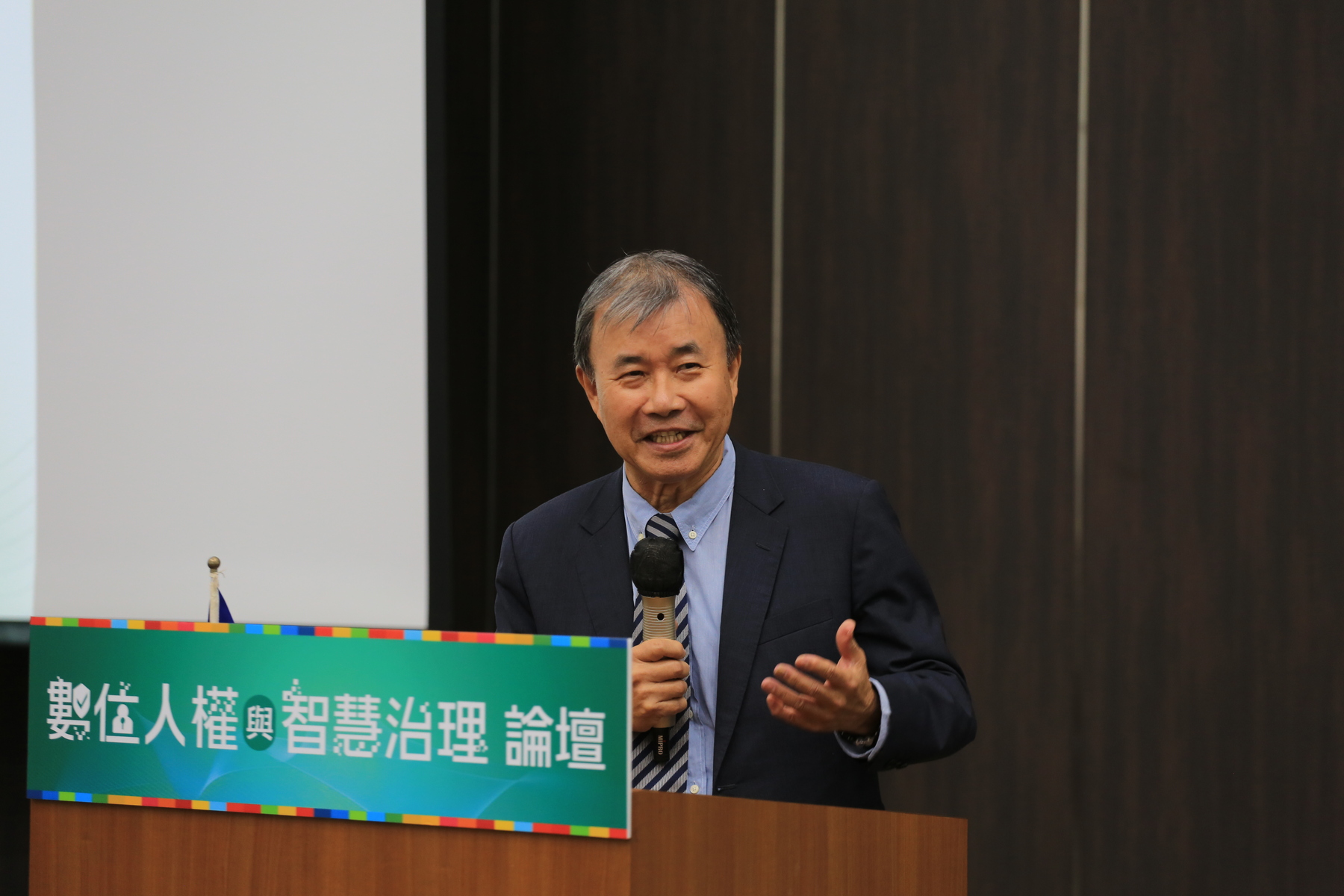
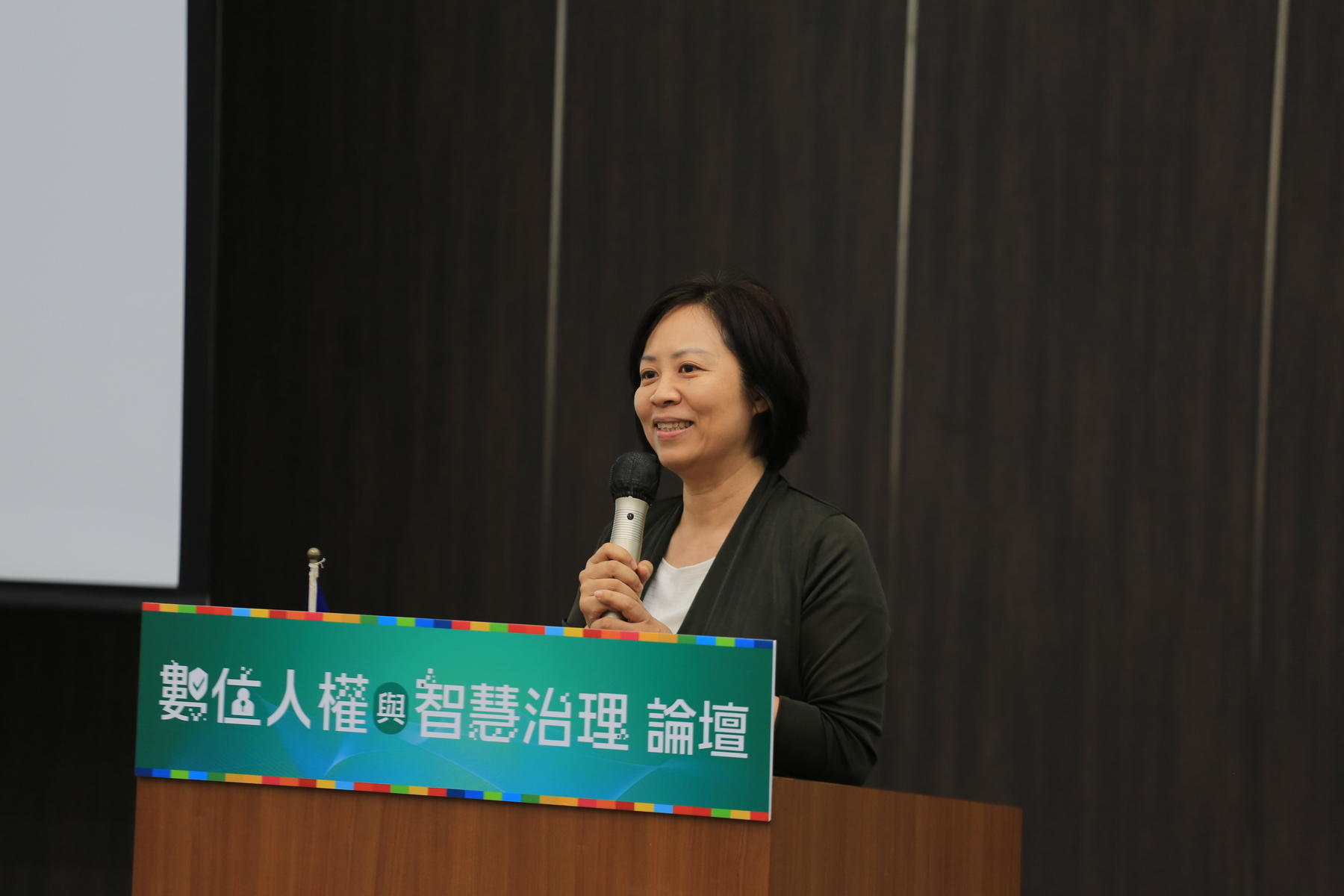
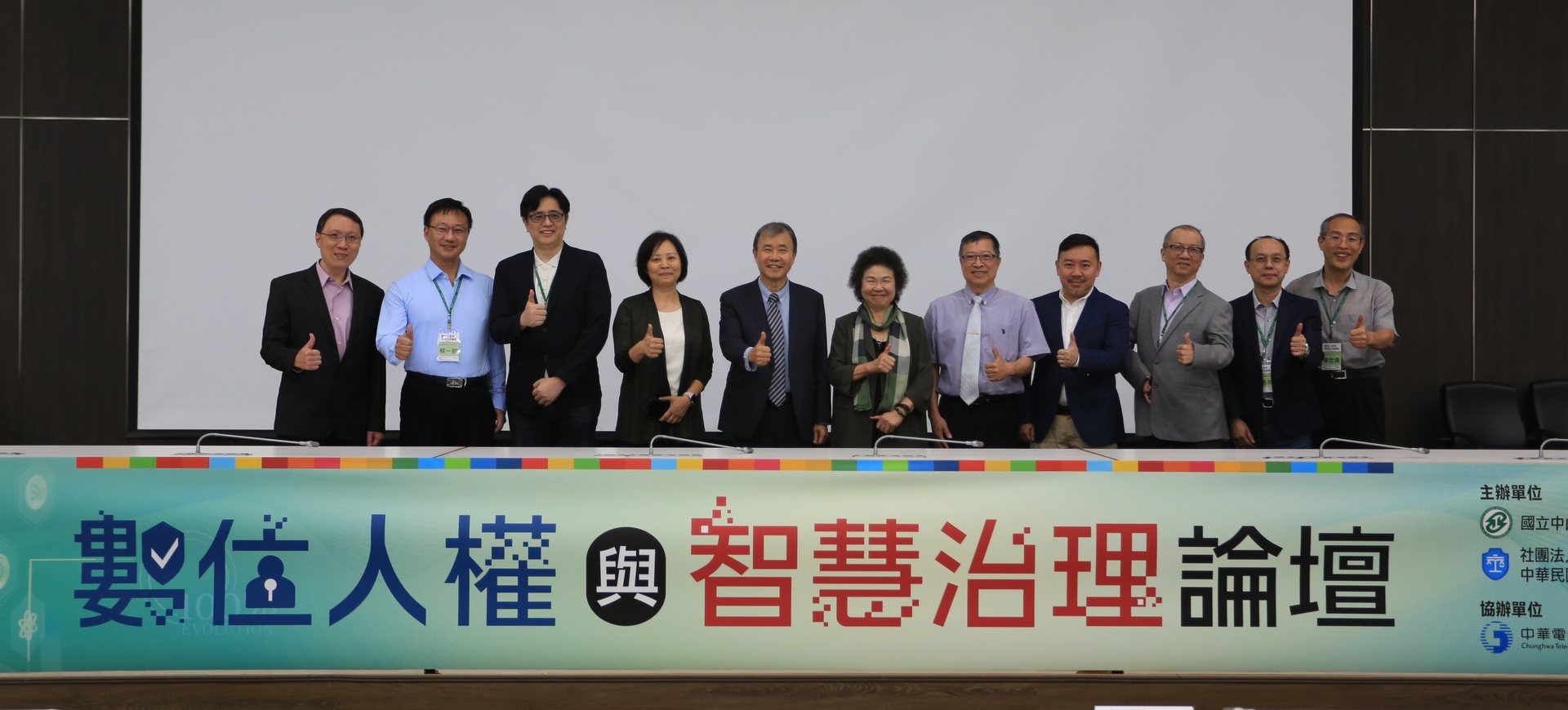
2023-08-01
(Provided by Institute of Public Affairs Management) Institute of Public Affairs Management at National Sun Yat-sen University (NSYSU) cohosted the inaugural Digital Human Rights and AI Governance Forum in south Taiwan, collaborating with the Digital Financial Trade and Data Protection Association. The theme of the forum is to establish the AI ultra-future with tolerance, sustainability, and resilience. Different fields of experts discussed the opportunities and challenges in the era of rapid AI development from their perspectives. Including students and external participants, more than 300 attendees participated in the forum.
Chen Chu, the former mayor of Kaohsiung City and the Chairperson of the National Human Rights Commission (NHRC) was invited to return to NSYSU, her alma mater, to offer the opening remarks for the event. She encouraged students to expand their horizons with proactivity, to learn from multiple areas, to consider AI development with varied perspectives and tolerance, to pay attention to human rights and social justice concerns, and to strengthen social resilience eventually with efficiency, security, and sustainability. Chen Chu also emphasized that digital human rights play a pivotal role in initiating the intelligence transformation in Taiwan. Thus, the NHRC committed much effort and resources to improve the digital human rights of women, children, and youths, to bridge digital gaps between urban and suburban areas, and to initiate cross-international communications.
Ying-Yao Cheng, the President of NSYSU, reemphasized the significance of digital human rights in his speech. He mentioned NSYSU’s digital human rights-related projects, such as the degree program of Information and Communication for Technology Crime Investigation, which cooperated with the National Police Agency, and the newly-built College of Semiconductor and Advanced Technology Research and School of Banking and Finance. NSYSU had dedicated to cultivating talents and enhancing Taiwan’s competitive advantages. Yen-Wen Peng, Chair of NSYSU’s Institute of Public Affairs Management, indicated that artificial intelligence should be utilized to bridge digital gaps rather than solely being rejected to prevent corruption.
The Digital Human Rights and AI Governance Forum was hosted by Sang-Ju Yu, the Assistant Professor of NSYSU’s Institute of Public Affairs Management and the Chairperson of the Digital Financial Trade and Data Protection Association. Yu presented much enthusiasm in initiating the topics such as digital equivalence, intelligence transformation and governance, and also brought up many innovative concepts such as Ultra-Intelligence Nation and AI Ultra-Future. Other speakers, such as Yi-Lang Tsai, the CEO of Shield eXtreme, Shih-wei Liao, the Associate Professor of the Department of Computer Science & Information Engineering at National Taiwan University, and experts from the fields of IT security, personal data and privacy protection, AI applications and innovation had also given insightful speeches for the event. The attendees were motivated clearly by the speeches. Their reactions demonstrated the success of the forum.
Moreover, on the topic “AI development Opportunities and Challenges,” invited specialists from the areas of technology research & development, law, public governance, and information telecommunications joined the panel discussion. The participants of the panel discussion included the Distinguished Professor of the Department of Information Management at NSYSU San-Yih Hwang, the Director of the Legal Affairs Bureau of Kaohsiung City Government Shih-Fang Wang, the Professor of the Department of Political Science at National Cheng Kung University Li-Chun Chiang, and the Vice President of the Enterprise Business Group at Chunghwa Telecom Ming-Chung Chen. Aiming to substantialize the common objective, digital equivalence, by implementing strategic governance and enabling intelligent techniques to be friendly, tolerant, and innovative, the forum demonstrated a resounding success through cross-curricular, cross-areas, and cross-generation conversations.
(Edited by Public Affairs Division)
(Provided by Institute of Public Affairs Management) Institute of Public Affairs Management at National Sun Yat-sen University (NSYSU) cohosted the inaugural Digital Human Rights and AI Governance Forum in south Taiwan, collaborating with the Digital Financial Trade and Data Protection Association. The theme of the forum is to establish the AI ultra-future with tolerance, sustainability, and resilience. Different fields of experts discussed the opportunities and challenges in the era of rapid AI development from their perspectives. Including students and external participants, more than 300 attendees participated in the forum.
Chen Chu, the former mayor of Kaohsiung City and the Chairperson of the National Human Rights Commission (NHRC) was invited to return to NSYSU, her alma mater, to offer the opening remarks for the event. She encouraged students to expand their horizons with proactivity, to learn from multiple areas, to consider AI development with varied perspectives and tolerance, to pay attention to human rights and social justice concerns, and to strengthen social resilience eventually with efficiency, security, and sustainability. Chen Chu also emphasized that digital human rights play a pivotal role in initiating the intelligence transformation in Taiwan. Thus, the NHRC committed much effort and resources to improve the digital human rights of women, children, and youths, to bridge digital gaps between urban and suburban areas, and to initiate cross-international communications.
Ying-Yao Cheng, the President of NSYSU, reemphasized the significance of digital human rights in his speech. He mentioned NSYSU’s digital human rights-related projects, such as the degree program of Information and Communication for Technology Crime Investigation, which cooperated with the National Police Agency, and the newly-built College of Semiconductor and Advanced Technology Research and School of Banking and Finance. NSYSU had dedicated to cultivating talents and enhancing Taiwan’s competitive advantages. Yen-Wen Peng, Chair of NSYSU’s Institute of Public Affairs Management, indicated that artificial intelligence should be utilized to bridge digital gaps rather than solely being rejected to prevent corruption.
The Digital Human Rights and AI Governance Forum was hosted by Sang-Ju Yu, the Assistant Professor of NSYSU’s Institute of Public Affairs Management and the Chairperson of the Digital Financial Trade and Data Protection Association. Yu presented much enthusiasm in initiating the topics such as digital equivalence, intelligence transformation and governance, and also brought up many innovative concepts such as Ultra-Intelligence Nation and AI Ultra-Future. Other speakers, such as Yi-Lang Tsai, the CEO of Shield eXtreme, Shih-wei Liao, the Associate Professor of the Department of Computer Science & Information Engineering at National Taiwan University, and experts from the fields of IT security, personal data and privacy protection, AI applications and innovation had also given insightful speeches for the event. The attendees were motivated clearly by the speeches. Their reactions demonstrated the success of the forum.
Moreover, on the topic “AI development Opportunities and Challenges,” invited specialists from the areas of technology research & development, law, public governance, and information telecommunications joined the panel discussion. The participants of the panel discussion included the Distinguished Professor of the Department of Information Management at NSYSU San-Yih Hwang, the Director of the Legal Affairs Bureau of Kaohsiung City Government Shih-Fang Wang, the Professor of the Department of Political Science at National Cheng Kung University Li-Chun Chiang, and the Vice President of the Enterprise Business Group at Chunghwa Telecom Ming-Chung Chen. Aiming to substantialize the common objective, digital equivalence, by implementing strategic governance and enabling intelligent techniques to be friendly, tolerant, and innovative, the forum demonstrated a resounding success through cross-curricular, cross-areas, and cross-generation conversations.
(Edited by Public Affairs Division)
Click Num:
Share
